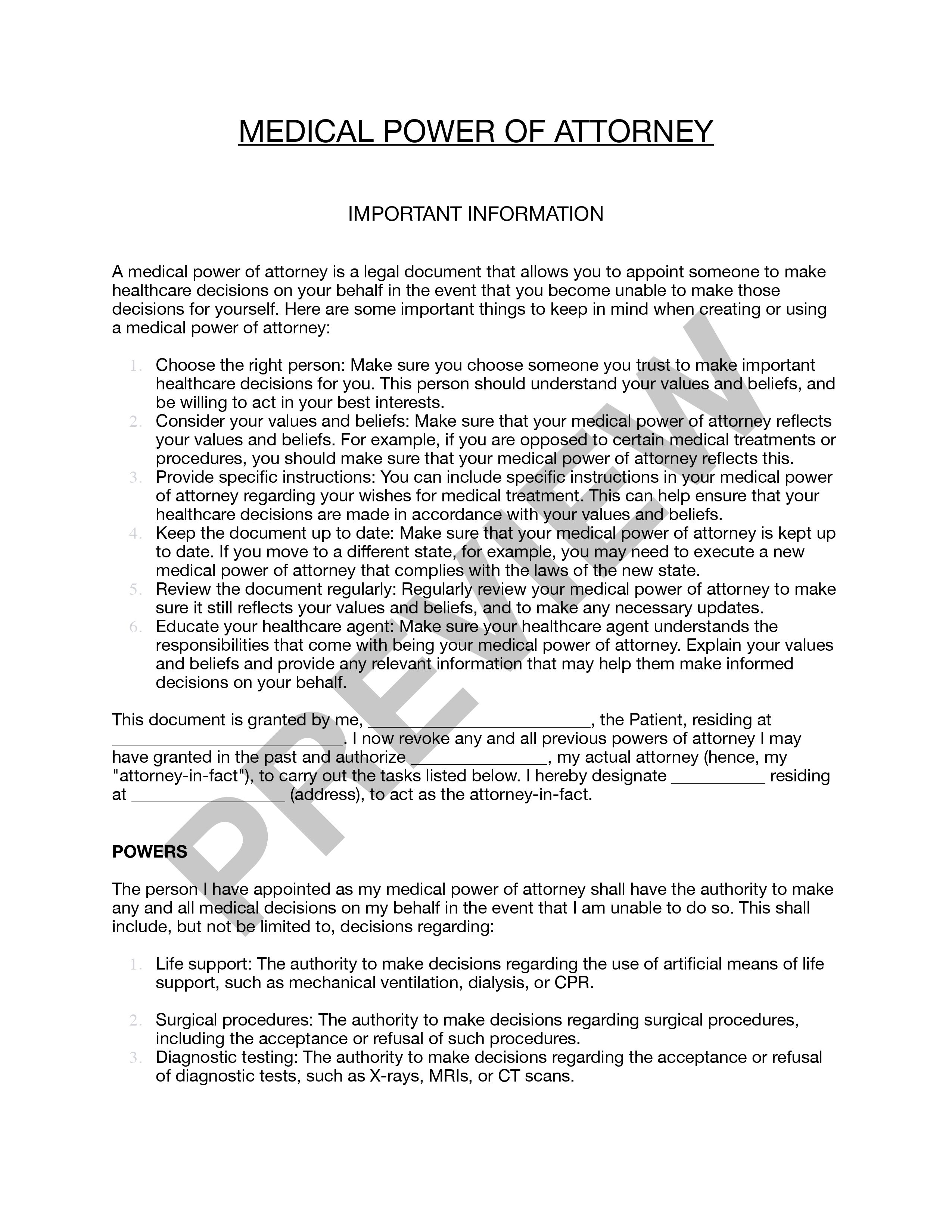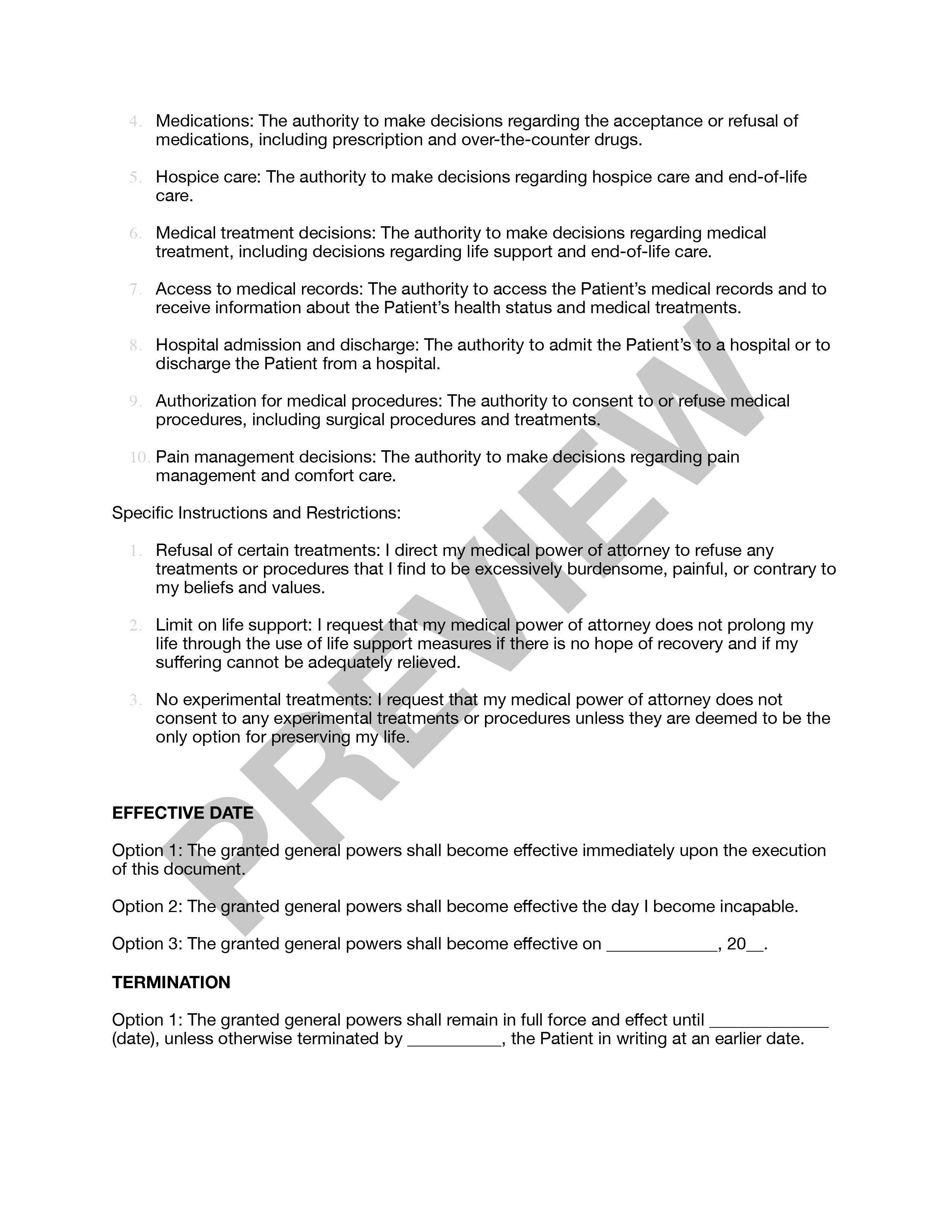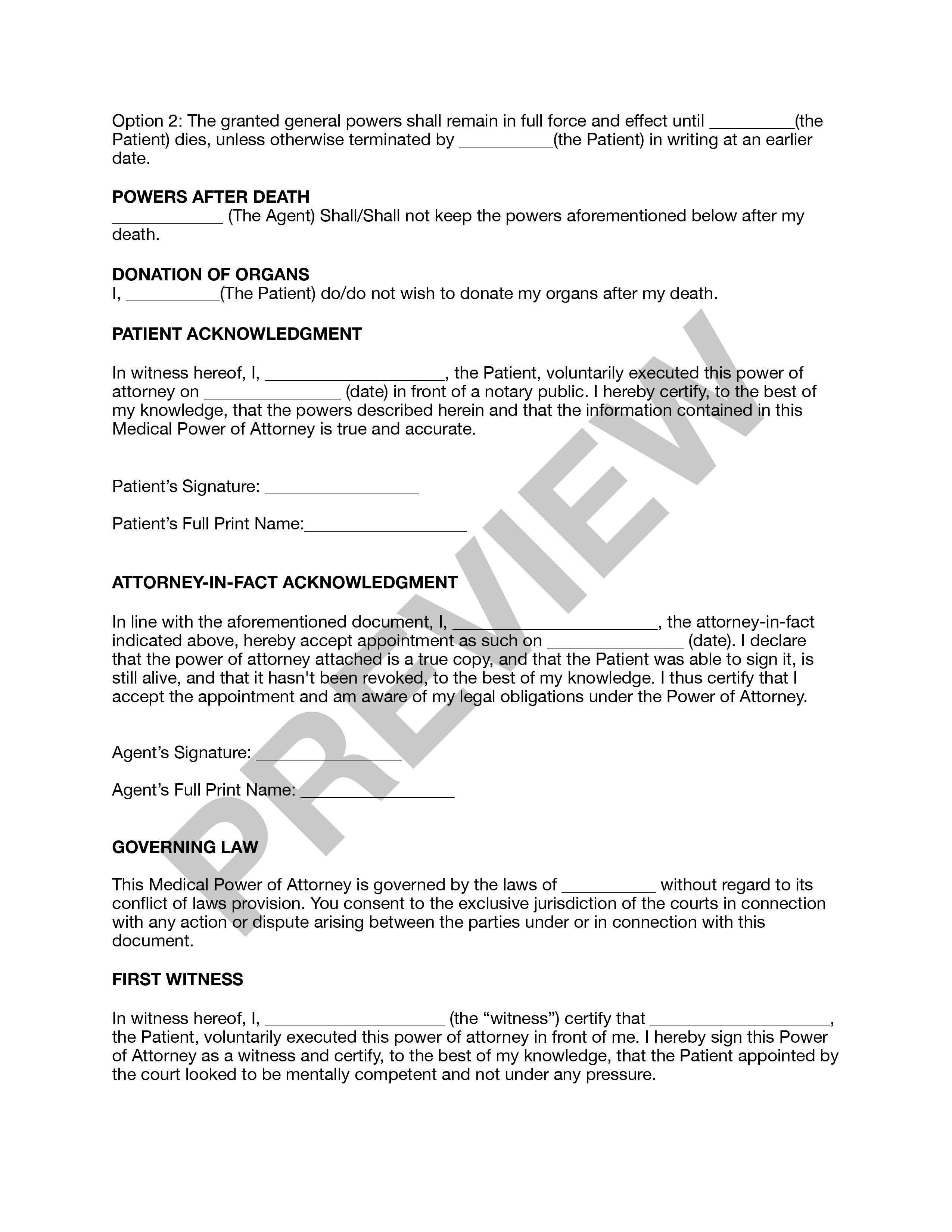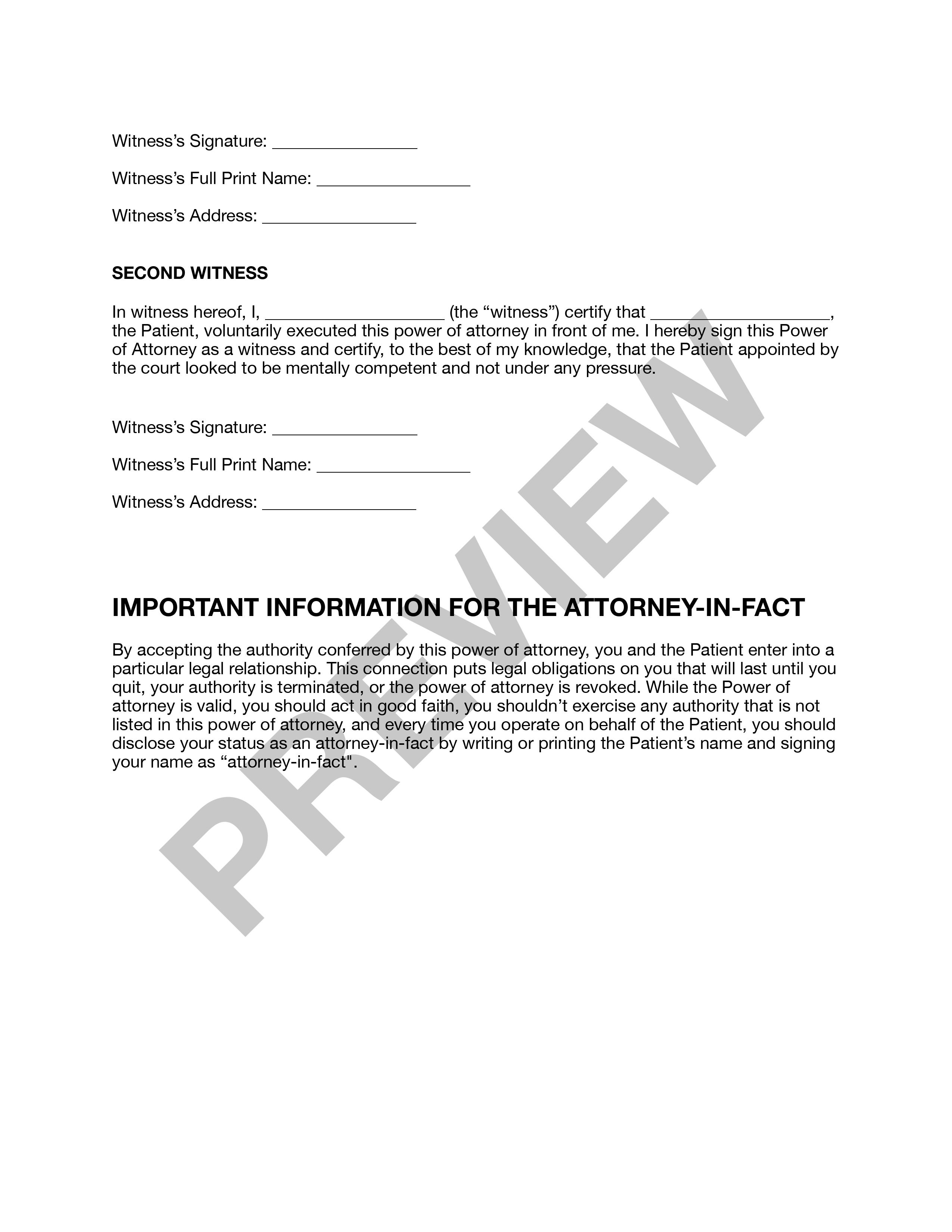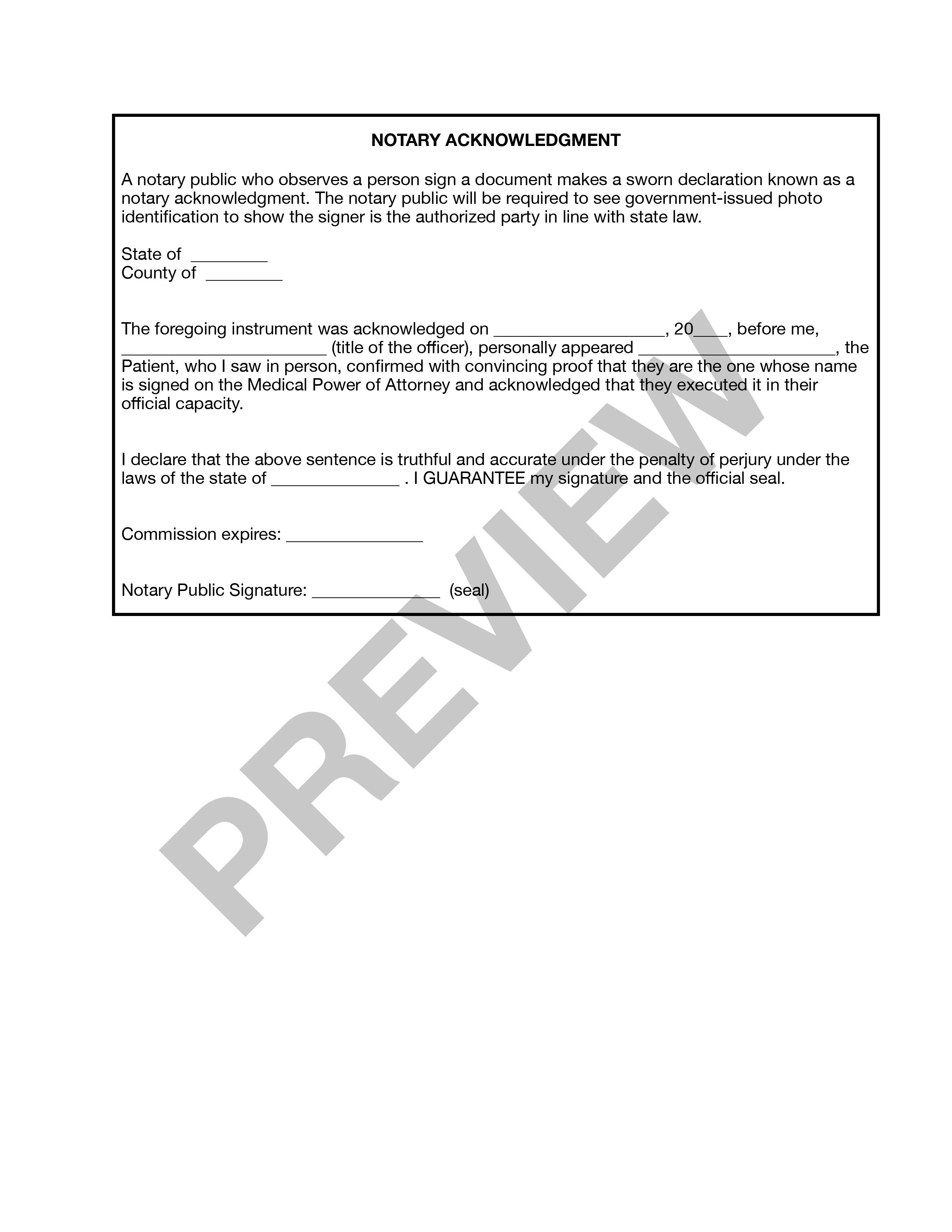Medical Power of Attorney
Get Started
Additional Instructions
Principal Information
The "Principal" (also referred to as the Patient) is the person who is appointing an agent to make healthcare decisions on their behalf.Agent Information
The Agent (also referred to as the attorney-in-fact) is the person who is given the authority to make healthcare decisions on behalf of the principal.Successor Agent Information
Effective Date
Final Details
First Witness (You can fill later)
Second Witness (You can fill later)
Frequently Asked Questions
You should choose the state in which you reside or where your affairs are located.
A medical power of attorney is a legal document that allows a person to appoint someone else to make medical decisions on their behalf if they are unable to do so themselves. This person, also known as a healthcare proxy, is authorized to make healthcare decisions based on the patient's wishes, as outlined in the document. This can include decisions about medical treatments, surgeries, medications, and other healthcare-related issues. A medical power of attorney is an important document to have in place in case of unexpected illness, injury, or incapacitation, as it ensures that the patient's wishes are respected and that they receive the care they would want.
The authority to make decisions regarding medical treatment, including decisions regarding life support and end-of-life care.
Artificial means of life support refers to medical devices or procedures that are used to sustain a person's vital functions when their body is unable to do so on its own.
The authority to access the Patient’s medical records and to receive information about the Patient’s health status and medical treatments.
Hospice care is a type of health care that focuses on the palliation of a terminally ill patient's pain and symptoms and attending to their emotional and spiritual needs at the end of life.
Here are some additional instructions you may want to consider including in your medical power of attorney:
- Specific Instructions: You can include specific instructions about your medical treatment preferences, such as your desire to receive or refuse certain medical treatments or procedures.
- End-of-Life Decisions: You may want to include your wishes regarding end-of-life care, such as your preferences for life support, hospice care, and organ donation.
- Second Opinions: You may want to require that a second medical opinion be obtained before any major medical decisions are made.
- Communication: You may want to specify who should be notified of your condition and who should be present during medical discussions.
- Spiritual and Religious Beliefs: You may want to include any spiritual or religious beliefs that should be considered in making medical decisions on your behalf.
The requirements for acknowledging a medical power of attorney can vary depending on the state or jurisdiction where the document is being executed. In general, most states require that a medical POA is signed by two witnesses who are not related to the principal by blood or marriage.
In addition to witnesses, some states may require the medical POA to be notarized. Notarization involves a notary public verifying the identity of the principal and witnesses and certifying that they signed the document voluntarily and without coercion.
A notary acknowledement is a legal certification by a notary public that a person has signed a document in their presence and that the signature is genuine. The notary acknowledgment provides a level of assurance that the document is authentic and can be relied upon in legal proceedings.
To obtain a notary acknowledgment, the document signer must appear before the notary public, show proper identification, and sign the document in the notary's presence. The notary then affixes their official seal or stamp to the document and signs it to indicate that they witnessed the signature.
In some states in the United States, notarization of a Medical POA is required, while in others it is not. However, even if notarization is not required, it can be a good idea to have the document notarized, as it can provide additional evidence of the validity of the document in case of a dispute.


